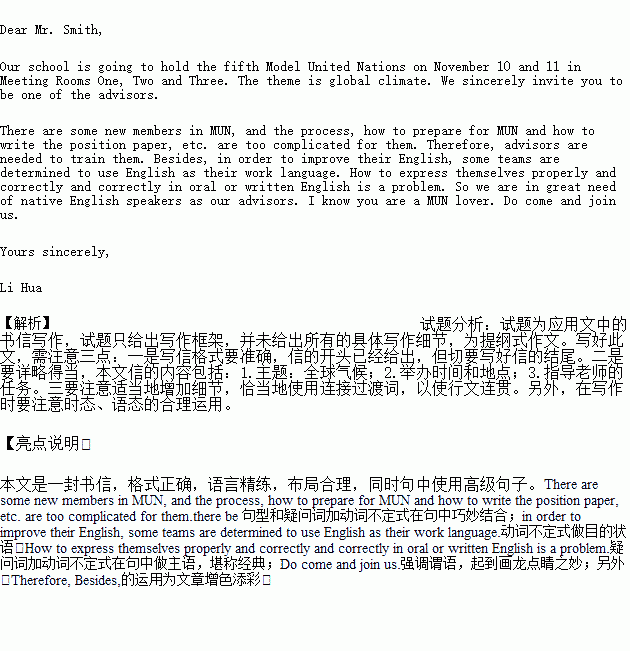题目内容
假设你是李华,是你校模拟联合国大会主席。你校将举办第五次模联活动,请给你们的外教Smith老师写封信,邀请他担任指导老师(advisor)。
信的内容包括:
1.主题:全球气候;
2.举办时间和地点;
3.指导老师的任务。
注意:
1. 词数100左右;
2. 可以适当增加细节,以使行文连贯;
模拟联合国大会MUN
_________________________________________________________________________________________________________________________________________________________________________________________________________________________________________________________________________________________________________________________________________________________________________________________________________________________________________________________________________________________________________________________________________________
练习册系列答案
 备战中考寒假系列答案
备战中考寒假系列答案
相关题目


 following is the newspaper editor’s opinion according to Paragraph2?
following is the newspaper editor’s opinion according to Paragraph2?